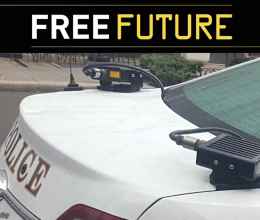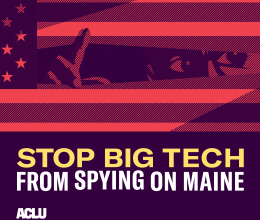A good rule of thumb when it comes to privacy and government surveillance is to always assume that the truth is a few notches scarier than whatever you previously assumed. Case in point: the ACLU recently obtained records from law enforcement agencies in Florida about their acquisition and use of sophisticated cell phone location tracking devices known as “Stingrays,” which can simulate a cell tower and trick your cellphone into handing over all of its identifying information without you ever knowing.
Turns out, these pesky little devices are being used much more frequently than even privacy advocates like the ACLU had assumed. Perhaps even more disconcerting, these latest records show that judges are often being kept out of the loop, with police either using Stingrays without any court order at all, or at best getting authorization based on the low standard of “relevance,” not a warrant based on probable cause as required by the Fourth Amendment.
Lots more information on Stingrays, including the full records from our recent records request, can be found here. But even if you aren’t inclined to further investigate Stingrays and all their creepy possibilities, the lesson is the same: when the government is allowed to use technology so advanced that judges don’t understand it and aren’t being informed of what it actually does, the Fourth Amendment is left out to dry.
Last Friday I met with students at Sumner Memorial High School in Sullivan, and as we walked through the many protections afforded to young people by the Bill of Rights, our discussion of the Fourth Amendment and its protection against unreasonable searches quickly turned to new technology. This is a frequent topic for our education program, as it is a perfect way to show students the modern relevance of the Constitution while also informing them of the importance of privacy and the relevance of concepts such as warrants, probable cause and reasonable suspicion.
Many students are shocked when they learn the extent of the government’s capabilities when it comes to monitoring their everyday lives. And who could blame them? What rational person would presume that a device easily available to local law enforcement agencies might be driving down your road, concealed in an innocent-looking van, secretly connecting to your cellphone and extracting all your personal information? When you throw in that this is happening without a warrant and in some cases without any judicial oversight at all, students are rightly confused by the willingness of the police to skirt the law and simply conduct warrantless searches on their own accord.
If these new records obtained by the ACLU remind us of one thing, it’s that we must remain vigilant against abuses of government power, particularly when it comes to surveillance through advanced technological means. Our court system is often too slow and too ill-equipped to respond to the changing face of technology, leaving all of us at the whim of an unconstitutional search or an unreasonable invasion of our personal privacy.
If you need further reminding of the scope of the government’s power – or of how long this type of covert surveillance has been going on – let me highly suggest you attend tomorrow’s screening in Portland of “1971”. The film recounts the story of eight ordinary citizens who broke into an FBI office 44 years ago and removed every file, including several which revealed a secret and illegal surveillance program overseen by longtime Bureau director J. Edgar Hoover. “1971” examines their story as well as the consequences and implications of their actions, and it will be followed by a live Q+A conducted by our very own legal director, Zach Heiden.
The more we bring to light these types of abuse of government power and expose examples of warrantless searches and illegal surveillance programs, the better we will be equipped as a nation to enforce the Fourth Amendment as it should be enforced and ensure that all of us are secure in our persons, houses, papers and effects, as guaranteed under the U.S. Constitution.









